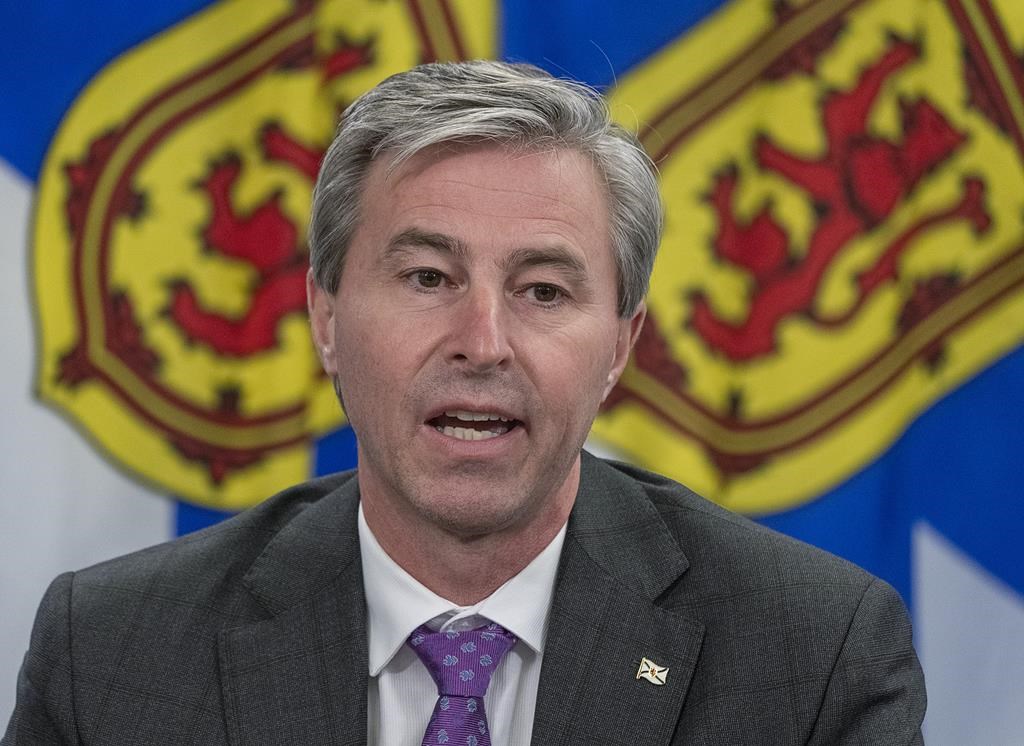Nova Scotia is poised to remove all COVID-19 restrictions as of March 21, the premier announced on Wednesday.
Premier Tim Houston called it a “return to normalcy” and acknowledged the “divided” environment the world is in, which has recently seen protests against COVID-19 mandates.
“No matter the emotions you are experiencing right now we can all agree that this has been a long, long run,” said Houston.
He said that restrictions will slowly begin to ease, with all restrictions set to be lifted by March 21 so long as everything “stays the course.”
The proof of vaccination policy in the province, which only allowed fully-vaccinated Nova Scotians to take part in “discretionary activities” such as dining in a restaurant, will be removed Feb. 28.
Houston said he respects that the removal of restrictions is a “scary thought for some Nova Scotians” but said high vaccination numbers and the sacrifices made over the past two years have made this possible.
Dr. Robert Strang, the province’s chief medical officer of health, said more people are being discharged from hospital due to COVID-19 than being admitted. He added that outbreaks in vulnerable settings have decreased and new case numbers are declining.
“However we have to remember our acute care system is still under tremendous strain and recovery will be slow but it will happen,” he said.
Trending Stories
Police release brief videos showing alleged attack on northern B.C. gas pipeline camp
Jane ‘Nightbirde’ Marczewski, ‘AGT’ star, dies of breast cancer at 31
The province is set to begin Phase 2 of its latest reopening plan a week early on March 7, with some adjustments.
Bars, restaurants and gyms will be allowed to operate at 75 per cent capacity with distancing “as much as can be achieved,” said Strang.
Informal gatherings indoors will remain at 25 people, but increase to 50 outdoors.
Masking will still be required in indoor public spaces, but as of March 7, people can remove their masks to eat while seated at concerts, movies and sporting events.
That phase is scheduled to last two weeks, and Phase 3 will begin on March 21.
At that point, there will be no more capacity limits and masking will no longer be required in public spaces but will still be recommended.
Public schools will keep their co-horting, masking and distancing plans until March Break, which begins March 14.
When students return to classes on March 21, there will be no restrictions or measures.
“There are a lot of people who are ready to get back to something that more closely resembles life before this pandemic. But for others the idea of having no restrictions, of going back to the way things were before comes with its own uncertainty and stress,” said Strang.
But he said restrictions were “never meant to be a permanent solution.”
“I truly believe that we are ready, that Nova Scotians are ready. We have the tools to manage COVID.”
He acknowledged that while COVID-19 has now shown itself to be relatively mild among the vaccinated, there are people at particular high risk of serious disease and death: the unvaccinated, or the elderly living in group settings, for example.
“As we lift restrictions, our choices and actions become even more important. They will be the tools that we have to limit the spread of COVID-19 and protect those around us who are more vulnerable,” said Strang.
More to come
© 2022 Global News, a division of Corus Entertainment Inc.



